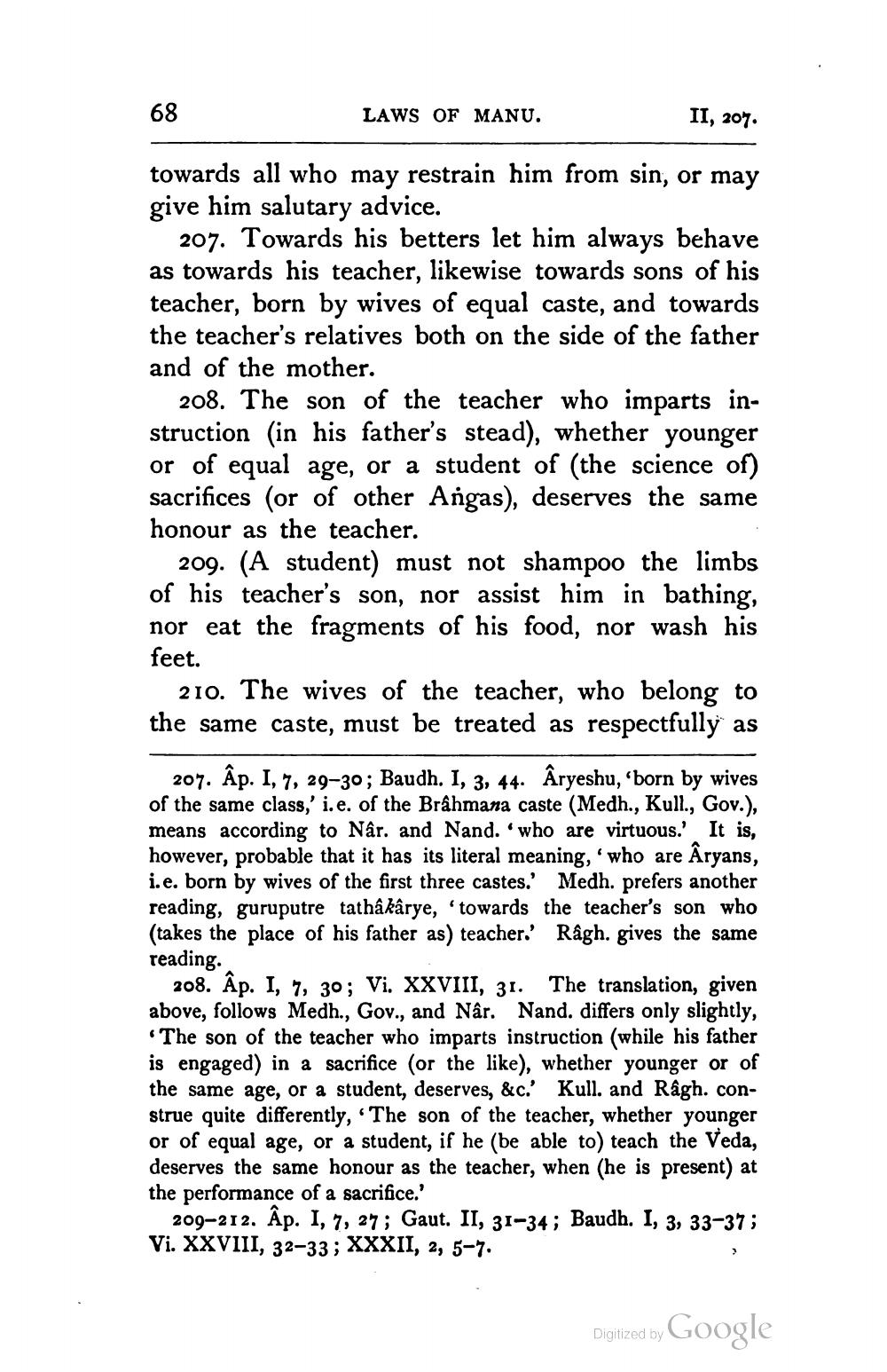________________
II, 207.
towards all who may restrain him from sin, or may give him salutary advice.
68
LAWS OF MANU.
207. Towards his betters let him always behave as towards his teacher, likewise towards sons of his teacher, born by wives of equal caste, and towards the teacher's relatives both on the side of the father and of the mother.
208. The son of the teacher who imparts instruction (in his father's stead), whether younger or of equal age, or a student of (the science of) sacrifices (or of other Angas), deserves the same honour as the teacher.
209. (A student) must not shampoo the limbs of his teacher's son, nor assist him in bathing, nor eat the fragments of his food, nor wash his feet.
210. The wives of the teacher, who belong to the same caste, must be treated as respectfully as
207. Ap. I, 7, 29-30; Baudh. I, 3, 44. Âryeshu, 'born by wives of the same class,' i. e. of the Brahmana caste (Medh., Kull., Gov.), means according to Nâr. and Nand. who are virtuous.' It is, however, probable that it has its literal meaning, 'who are Âryans, i.e. born by wives of the first three castes.' Medh. prefers another reading, guruputre tathâkârye, 'towards the teacher's son who (takes the place of his father as) teacher.' Râgh. gives the same reading.
208. Ap. I, 7, 30; Vi. XXVIII, 31. The translation, given above, follows Medh., Gov., and Nâr. Nand. differs only slightly, 'The son of the teacher who imparts instruction (while his father is engaged) in a sacrifice (or the like), whether younger or of the same age, or a student, deserves, &c.' Kull. and Râgh. construe quite differently, 'The son of the teacher, whether younger or of equal age, or a student, if he (be able to) teach the Veda, deserves the same honour as the teacher, when (he is present) at the performance of a sacrifice.'
209-212. Ap. I, 7, 27; Gaut. II, 31-34; Baudh. I, 3, 33-37; Vi. XXVIII, 32-33; XXXII, 2, 5-7.
Digitized by
Google




